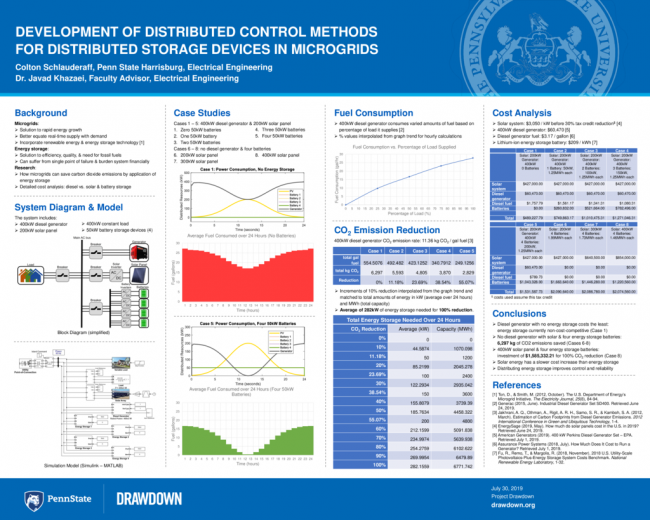The current state of the national power grid does not accommodate for the rapid growth of energy demand. In order to better meet this demand, the Department of Energy aims to implement a microgrid system, which incorporates both renewable energy sources and energy storage devices in localized areas. Energy storage devices are normally installed in a centralized manner and help to better equate real-time supply with demand but can suffer from single point of failure as well as burden the system financially. To address these concerns, this research proposes how microgrids can save CO 2 emissions by application of distributed energy storage. The proposed microgrid system includes a 400kW diesel generator, a 200kW solar panel, fixed and variable loads, and four 50kW battery energy storage devices. This research studies the control of energy sources in the proposed microgrid in order to reduce CO 2 emissions in increments from 10 to 100% for a 24-hour operating period as well as a detailed cost analysis for implementing batteries and solar panels of different capacities. Energy storage devices still fail to be cost-competitive with the fossil fuel industry but are a notable investment today to offset greenhouse gas emissions when used with renewable energy.
Day
Monday Poster Session
Related Conference Themes
Electricity Generation


